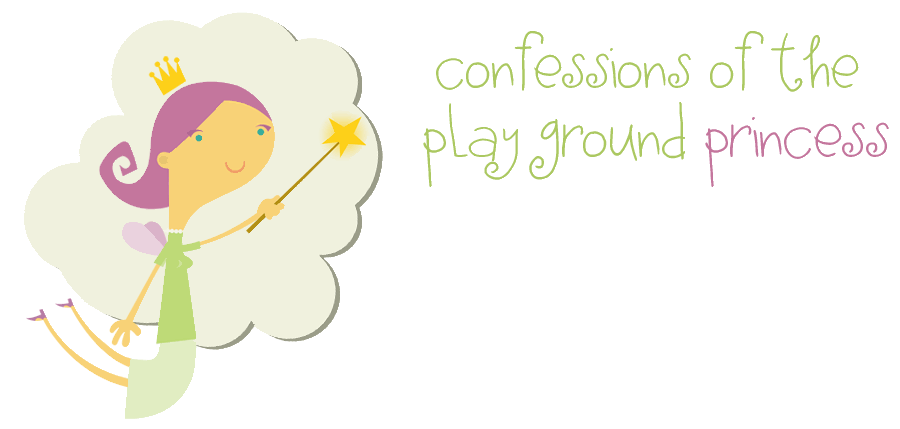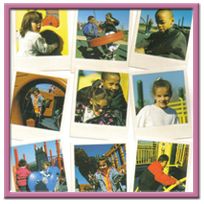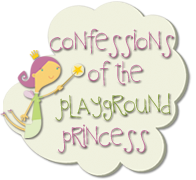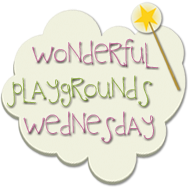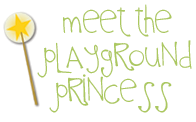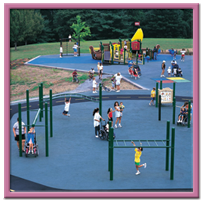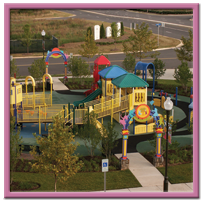
Every once in a while I come across an article that “hits home.” Today in this day and age where I believe play is an important part of all children’s lives I feel this is well worth the reprint.
September 2, 2009 By: Stuart Brown New York Times Online
Here on the balmy central coast of California and all across the country, kids are heading back to school. The classes are larger, the No Child Left Behind mandates remain in place and, despite advice from the nation’s secretary of health and human services and others, recess and physical education (not to mention art and music instruction) have in many schools been cut back or eliminated. While most of our backpack-laden kids are eager to catch up with friends they haven’t seen over the summer, the general feeling is that “playtime is over.”
Even if summer does not bring children a complete release from their over-organized, cell-phone-computer-TV-and-video-game-saturated lives, it does offer most a bit of free “goof-off” time – the sort that leads to physical activity and elective, self-organized play, often in short supply during the school year. Still, it’s not enough. Goof-off time shouldn’t be limited to summer vacation: it’s important all year.
For most American children in the not-so-distant past, “going out to play” was the norm. Today, according to a University of Michigan study, children spend 50 percent less time outside than they did just 20 years ago — and the 6.5 hours a day they spend with electronic media means that sitting in front of a screen has replaced going out.
Through the lens of play research, we can see that there is a direct line between play deficiencies and some frightening public health and social trends: tragic statistics for obesity, 4.5 million children diagnosed with attention deficit hyperactivity disorder, an increase in childhood depression and classroom behavioral problems involving violence, and an inability to interact well with peers.
Just an hour a day of vigorous play — running, chasing, games like tag or dodge ball, and even dealing with or avoiding being excluded from these activities — can provide intense skill learning. Physical activity is known to lessen the symptoms of mild attention deficit disorder, and is associated with much lower incidences of childhood obesity. Active kids are also more facile intellectually and perform better academically in the long term.
Physically engaging play is actually more fun than the virtual sort, and the enlivenment one gets from it can transcend the allure of sedentary life in a two-dimensional, electronic world. But breaking away from the draw of a well-crafted, image-laden on-screen story line requires broad cultural reinforcement. It helps to be aware of how important play is to one’s development. To make that happen, we need a change in public consciousness about play — to show that it is not trivial or elective — as well as focused community and parental support.
Evidence from around the scientific compass — neuroscience, psychology, exercise physiology, sociology and developmental biology — has revealed the importance of play. Deprive a social mammal like a rat or monkey of its normal rough-and-tumble play and it enters adulthood emotionally fragile, unable to tell friend from foe, poor at handling stress and lacking the skills to mate properly.
My studies of young homicidal males and felony drunken drivers revealed that most had lacked normal, developmentally appropriate rough and tumble play as children and pre-adolescents, while a control population had experienced typical playground give and take during their elementary and middle school years.
The differences in playfulness when adulthood arrives (I have followed more than 6,000 detailed play histories) validates the importance of lifelong play. Play-deprived adults are often rigid, humorless, inflexible and closed to trying out new options. Playfulness enhances the capacity to innovate, adapt and master changing circumstances. It is not just an escape. It can help us integrate and reconcile difficult or contradictory circumstances. And, often, it can show us a way out of our problems. There are numerous examples of difficult, deadlocked negotiations that were broken open by a joke or humorous incident. Many people have had the experience of coming back from vacation brimming with new ideas for work. The benefits of play come not from “rest” for the brain, as if play is just a time-out from life. Play is an active process that reshapes our rigid views of the world.
True play may seem pointless — it is done for its own sake, because it’s fun — but ultimately it is also useful. From an evolutionary perspective, the smarter the animal, the more they play. For humans, play reinvigorates us not because it is down time, but because it gets us in touch with our core selves and the joy of life.
Even if I didn’t know all I do about the concrete benefits of play, I would feel sad about the kids (and their parents) who have given up on play for another nine months. Knowing what I do, I can see that their autumnal devaluation of play is a tragic loss for them and for our society.
Stuart Brown, is founder and president of the National Institute for Play, author of “Play, How it Shapes the Brain, Opens the Imagination, and Invigorates the Soul.”

